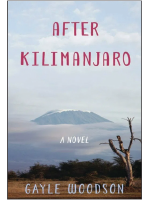When I went to college, I intended to be a journalist and started out majoring in English. But I became fascinated with molecular genetics and physiology. Then came the woman’s liberation movement, and medical school began to open up to women. —Gayle Woodson, MD
Explore This Issue
December 2019
I was surprised I liked surgery so much; it wasn’t like egos against egos, but everybody working together. When I rotated to the otolaryngology service at Baylor College of Medicine, the chairman there was Bobby Alford. I was so impressed by how he interacted with patients and how conscientious he was. He was an icon in the field of otolaryngology.
I kept writing scientific articles and books, but I had little time for fiction until my four children (all now adults) were grown and I retired from academics.
Today, I read broadly to see how other authors write. I’ve enjoyed Sharon Bala’s The Boat People, about how we view immigrants in the age of terrorism. Another favorite is Abraham Verghese’s Cutting for Stone, a medical saga. I also liked Charles C. Mann’s 1491 and 1493, about how much was going on in the world before Columbus’ arrival, and much of Malcolm Gladwell’s Blink and The Tipping Point.
ENTtoday: What other works have you written, and what do you typically write about?
 GW: Aside from more than 150 journal articles, I have published a number of short stories online, with varied topics from overflowing toilets to nuclear holocaust. I have a blog about random things, like when my robot vacuum attacked my handheld shark, or my three days in the hospital for a cat bite. After Kilimanjaro is my first published novel.
GW: Aside from more than 150 journal articles, I have published a number of short stories online, with varied topics from overflowing toilets to nuclear holocaust. I have a blog about random things, like when my robot vacuum attacked my handheld shark, or my three days in the hospital for a cat bite. After Kilimanjaro is my first published novel.
ENTtoday: Has medicine prepared you for a career as a writer?
GW: My medical career certainly gave me a lot of material for writing. And the academic writing was good discipline, especially writing and editing abstracts. Cutting out unnecessary words is essential to writing clearly; crafting a 200-word limit to summarize a paper is great exercise in being concise.
Writing is a popular hobby/second career for physicians. I belong to a Facebook group of women physician writers. The American College of Surgeons has a writers’ section. I think you get better at writing by reading and writing things, and getting feedback on your work, not from your friends or spouse, but by being in writers’ groups. Loving writing is the easy part; the hardest is marketing, getting an agent, getting published, and getting people to buy your work.